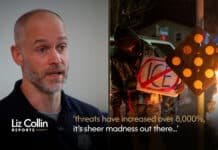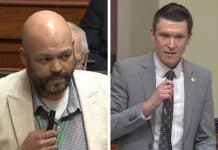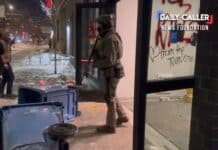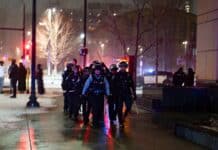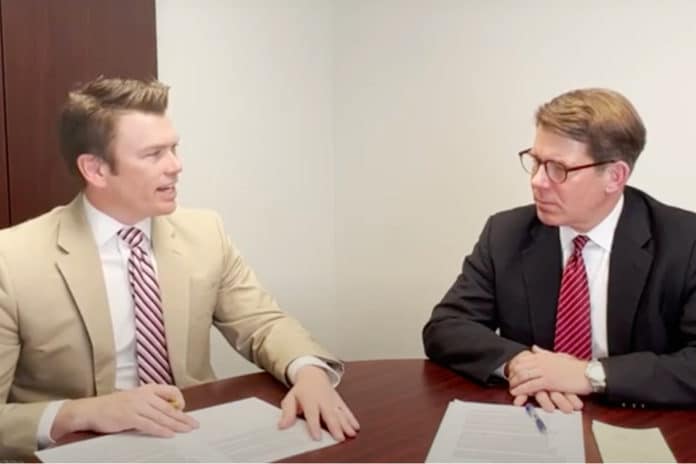
Law experts spoke out against an “illogical” Monday appeals court ruling that overturned a July decision ordering Minneapolis to properly staff its police department.
With the Upper Midwest Law Center — the organization that originally sued the city of Minneapolis for failing to staff the appropriate amount of police officers — James Dickey called the decision of the appeals court “egregious” and “divorced from reality,” according to a video from the Center of the American Experiment.
Dickey, who is a senior trial counsel with the Upper Midwest Law Center, said the court’s decision “destroys the meaning of the Minneapolis City Charter.”
On Monday, the appeals court’s ruling overturned a July 2021 order from Hennepin County District Judge Jamie Anderson, who directed the city to immediately take action to fund and employ a police force of at least 731 officers.
The appeals court found that the City Charter “clearly imposes a duty on the city council to continuously fund a police force with a minimum number of sworn police officers, but the charter does not clearly impose a duty on the mayor to continuously employ that same minimum number of sworn police officers.”
According to Dickey, the court employed two large errors in its decision: one, it failed to recognize that funding a police force means there needs to “actually be officers funded by that money.”
“According to the court, as long as the City Council writes down a number of officers on paper, that’s good enough, even though the money isn’t actually there to fund the actual number of officers,” Dickey said.
“If you have a number on paper that says 750 officers but then you have 250 on the force, have you really provided the funds for it? The answer that we thought is no,” he added.
Dickey said the court has “blessed this practice of creating a ghost force in Minneapolis, which is a number on paper that doesn’t translate to safety for the people of Minneapolis.”
Second, the court “invented arguments” that were never made in the case — the appeals court claimed the Upper Midwest Law Center was attempting to “control” the mayor’s discretion for how he staffed the police force. In reality, Dickey said, their case stated that the mayor should take any action necessary to fund and employ the correct amount of police officers.
Jeff Van Nest, a crime and justice policy fellow at the Center of the American Experiment, noted that the number of patrol officers on the streets of Minneapolis is at about 284; this is down about half compared to two years ago.
Yet, Dickey and Van Nest pointed out that Minneapolis has not yet offered sign-on bonuses for new officers, a tactic several suburbs are offering to boost their own police forces. The Roseville Police Department is offering a $10,000 bonus, and the Brooklyn Park Police Department is offering a $5,000 bonus, according to a job posting board for police officers in Minnesota.
New police cadets in Minneapolis make about $20 an hour, according to a posting from the city, Van Nest said.
“Why work for $20 an hour for the city of Minneapolis and the police force when the City Council undermines you at every step, including by trying to actually defund and demonize the police?” Dickey said.
The ruling ultimately creates a situation wherein “a rogue mayor could actually defund the police all by himself,” Dickey noted.
The Upper Midwest Law Center said it will immediately file an appeal with the Minnesota Supreme Court and seek an expedited review.


